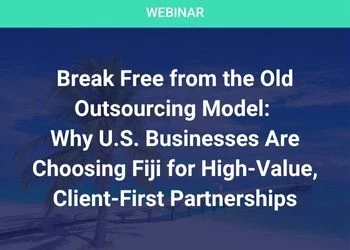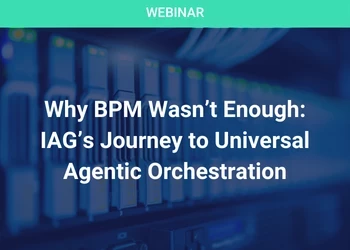25 lessons for work (and life)!
Add bookmarkIs there a secret formula for success in business – and in your career? Probably not. But I believe it makes sense to learn from the people I respect and who have been successful themselves.
Case in point: Ira Fialkow was the Executive Vice President for Shared Services at CEMEX, until recently. His career spans 25 years and he is a highly respected leader in his field. I consider myself fortunate in having had the opportunity to work in his organization. Our collaboration continues, even today. I continue to learn from Ira, and he says he continues to learn from me! I believe that people thrive best, and succeed, when they have the opportunity to develop under the tutelage of those who precede them.
This series marks the culmination of 25 business lessons documented and developed by Ira over the past 25 years of his career. They were learned the hard way: through experience. Ira used to distribute these lessons to the team every year. The lessons changed slightly, over time, as new ideas emerged and new learnings were incorporated. In this series of 25 short articles, I will endeavor to share the 25 business lessons that I've learned from Ira and our shared services team.
The series is split across five sections.
Section 1 is about continuous self-improvement. In any endeavor, change begins with oneself. You cannot create a successful organization, nor be successful yourself, without the drive to do better and be better.
Section 2 is about creating a better work environment, and leads on from Section 1: Improving oneself means improving one’s professional atmosphere; no real change can be achieved without this.
Section 3 is about customer service: Every business unit has a customer, whether internal or external. And just because you don’t have direct dealings with the company’s external customers doesn’t mean you don’t have customers of your own. If you work for the payroll department of a large fast-food company, your customers are the employees in the payroll, and you need to know how to provide good customer service.
Section 4 relates to improving productivity. This includes eliminating bureaucracy and other things that hamper good service delivery. Let’s say you have great products and can provide good service. If it’s not affordable, easy to use, and timely to the customer, then it just doesn’t matter.Â
Finally, Section 5 involves competitive advantage. Much has already been written about competitive advantage, I know. But you’ll be surprised at some of the simple things you can do.
Read 25 Simple Work-life Lessons: Lesson 2
Read 25 Simple Work-life Lessons: Lesson 3Â
Read 25 Simple Work-life Lessons: Lesson 4
Read 25 Simple Work-life Lessons: Lesson 5Â
Section 1: Become addicted to constant and never-ending self-improvement
Each journey begins with a single step. In terms of change, this means starting with oneself. The six business lessons in this section suggest that everyone, irrespective of the successes already achieved, benefits from continuous self-improvement.
Business Lesson 1
___________________________________________________________
Have a mentor (even if they don’t know it). Be a mentor (someone is watching you).
Have a mentor (even if they don’t know it)
Most guides to mentoring start with advice on how to find the right mentor. This generally takes the following approach: (1) you have to look for a mentor with broad knowledge about the industry as well as expertise in the area you specialize in; (2) you have to find a mentor who is successful and on whom you can model your career; and (3) you have to formalize the relationship between mentor and mentee to make it long lasting and successful.
Given all that – how can you have a mentor(s), and they don’t know it?
Ira explains his philosophy: "Formal mentoring programs are great but why wait for one to come around? Mentoring is about behavior. It’s about doing the right things in the workplace, because first and foremost, it’s about personal integrity and character – as well as the fact that someone is watching you, and will emulate your behavior. I was extremely lucky, early in my career, when I was able to work with some great co-workers and supervisors who had a solid set of personal values coupled with results-oriented work disciplines. I emulated many of these behaviors and they helped shaped my leadership style."
What you do in the office is observed by the people you work with. Positive behavior creates positive impressions, which people will emulate. On the other hand, consistently below-par behavior can cause problems in the organization by creating dysfunctional teams.
Having a mentor means finding someone to emulate and learn from (even if they don't know it). You can have as many mentors as you need – people that excel in different disciplines and that exemplify different values. In my career, I’ve learned that mentoring is a process of engagement and inspiration, in as much as it’s a process of learning from someone.
At its very core, mentoring (whether mentor or mentee) is about wanting to improve yourself, in alignment with your goals.
Be a mentor (someone is watching you)
The shared services organization that Ira established and led for many years was the first recipient of the SSON’s "Best Mature Shared Services" Award in 2003. How did the organization earn this prestigious award? Ira has always attributed success in shared services to excellence in providing service to customers at an overall value that is better than other options. We have a very strong customer service culture within the organization, and this culture actively encourages mentorship.
Ira explains: "If you choose a positive attitude, show respect towards your customers, and treat them as if they are the reason for your organization’s existence (which they are!), this behavior develops into norms and values and permeates your culture, subsequently becoming the core of your service culture.
"But creating an excellent service culture requires that you practice the positive behaviors that will govern the value system of all the members of the organization. Mission and values statements are all well and good, but it’s the consistent behaviors that are emulated and put into practice, that become the values of the organization."
This lesson reminds me that I can become a mentor simply by doing the right thing. And I can do this in every aspect of my life, wherever I interact with people – in the office and at home. Mentoring is two-way, or multi-way, each individual learning from the other. However, if I want to be a mentor, I need to understand myself first. I have to work hard in pursuit of excellence and integrity, and I have to be generous in sharing my knowledge.
Douglas Lawson describes it well: "We exist temporarily through what we take, but we live forever through what we give." I believe truly successful people raise others up. They don't feel threatened. Instead, they find reward in seeing others succeed.
Being a mentor means inspiring commitment, building insights and motivating people to focus on the goals and behaviors that matter.
Business Lesson 1 Takeaways:
- Mentoring is about behavior and doing the right things in the workplace; not just because it’s right, but because someone is watching you and will copy your behavior. It becomes the norm, and the norm underpins the values of the organization.
- Positive behaviors create positive impressions and people emulate them. Consistently observed poor behavior, on the other hand, could spell problems in the organization and create dysfunctional teams.
- Creating an excellent service culture requires that you practice the positive behaviors of the organization’s value system. "Customers" are the reason you are there!Â
- At its core, mentoring (or having a mentor) is about seeking inspiration to improve yourself in alignment with your goals. Mentoring is two-way or multi-way, each individual learning from another.
- Whether you know it or not, you are a mentor to someone right now.
About the authors
Ira Fialkow is the SVP of Member Services at Peeriosity. Peeriosity is a confidential network of leading companies from across the world committed to collaborating openly with each other in a completely secure environment with interactions free of consultants and vendors. Prior to Peeriosity, Ira was EVP of Shared Services at CEMEX and Rinker Group (acquired by CEMEX is 2007) from 1990 through joining Peeriosity in October 2010. Rinker Group was the initial recipient of the Best Mature Shared Services Award in 2003. Ira lives in Palm Beach Gardens, Florida and has been the champion of his fantasy football league in three of the past five years.
Glenn Remoreras is an IT Manager at CEMEX. He brings over 12 years of experience as an IT director, business processes manager, project leader, and consultant. He has focused on enabling business solutions through the use of IT capabilities. Glenn has been involved with various post merger integration projects. He authors a weblog www.mysimpleprocesses.com where he writes about information technology and management articles.
Â
Ivy Remoreras is a marketing professional with eight years of extensive experience, particularly in product management, communications and promotions as a manager, university instructor and consultant. She believes in constant learning and has a Masters degree in Business Administration (MBA). Having resided in Europe, Asia and North America, she speaks four languages.





















